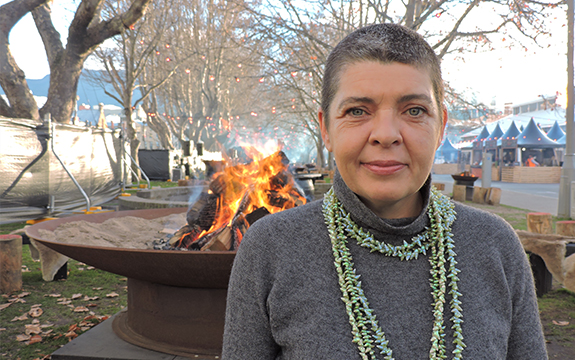Establishing practical steps towards reconciliation

In Summary
- This article originally featured in Swinburne's Research Impact magazine.
Swinburne’s Dr Emma Lee is working to establish a cultural fisheries industry in Tasmania as a practical step towards reconciliation. Dr Lee is the recipient of one of Swinburne’s 2018 Aboriginal and Torres Strait Islander Research Fellowships.
Dr Lee, who is a Trawlwulwuy woman from Tebrakunna country in north-eastern Tasmania, has argued that a cultural fishery could enable Aboriginal Tasmanians to develop economically, while maintaining traditional knowledge of how to care for sea country.
She pointed to a New Zealand model in which a significant percentage of commercial fisheries licences are allocated to Indigenous people. New Zealand’s is also one of the most sustainable fisheries in the world and is worth roughly $1.6 billion in exports. Dr Lee believes a counterpart founded in Australia’s most lucrative seafood region, could be used to create a national framework that would provide resolution to many of the country’s ongoing social issues.
She said Indigenous Tasmanians would like to provide shellfish and other seafood to restaurants so they can share their unique cultural stories. These arise from thousands of years of shellfish consumption by Indigenous Tasmanians that have resulted in a coastline featuring shell middens up to a kilometre long (see right).
While Aboriginal Tasmanians can access marine resources for their own food or cultural purposes, commercially they’re only allowed to sell shells for necklaces.
Recently, Dr Lee turned her attention to the legislative barriers to such cultural fisheries projects. Dr Lee has a lengthy record of reconciliation policy experience as one of the key architects of the first joint management plan for Australia’s largest wilderness, the Tasmanian Wilderness World Heritage Area.
To test the waters Lee employed an Indigenous research methodology to build relationships through wide-ranging stakeholder workshops. “I am a firm believer that on a full and satisfied belly we can come to understand each other as people who bring cultural strengths and assets to the table.” Last year this included a seafood and Indigenous storytelling event held at the annual Dark Mofo festival in Hobart.
During this process, Lee said local restaurateurs, the fisheries industry and government all expressed interest in the idea, particularly because the seafood can be sold at premium prices, its saleability enhanced by its local provenance and Indigenous links.
Dr Lee’s next step is to compare global examples of commercialising Indigenous foods and to look at developing a specialised training centre for future Indigenous fisheries.

